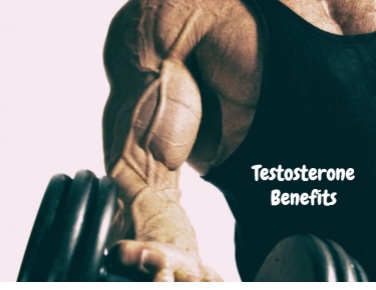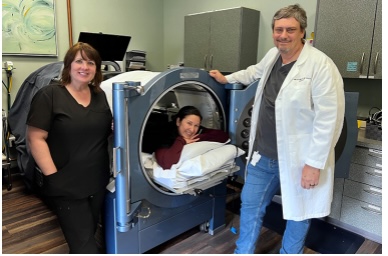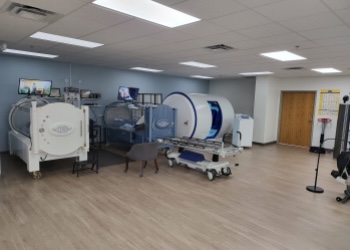Health
AA Meetings in New York: Catering to the “High-Functioning Alcoholics”

There are people who are successful, rich, and famous…and they drink. They are always well-groomed with an attractive appearance and good mannerism and carry out daily responsibilities with ease. They hardly appear like alcoholics. But they are.
Such people are called “high-functioning alcoholics.”
AA meetings in New York can help such individuals through the 12-step program.
Alcoholism as “wolf in sheep’s clothing”
Interestingly, the high-functioning alcoholics (HFA) function as responsible and productive people for their families and their bosses. Yet, they are dependent on alcohol.
They have roaring careers. They may get promotions for their high performance. They may excel in business. They may be popular too. Yet, at the end of the day, they need their drink…and they need it so badly, they just can’t go without it.
They constantly fight cravings. Although they appear to be healthy, physically and mentally, they are silently destroying themselves. Their minds are obsessed with alcohol, but they don’t show. Also, such people are in denial of their alcoholism.
Don’t be fooled by the appearance or deportment of a high-functioning alcoholic. They take as much alcohol as a person with a classic AUD (Alcohol Use Disorder). The only difference is: they can smartly hide the typical intoxication signs.
Is there an HFA around you?
If yes, then search for “AA meeting near me” and help them enroll for such meetings. Because such alcoholics are in denial of their alcoholism, you may need to coax them into attending meetings.
Why is high-functioning alcoholism more dangerous than classic alcoholism?
The National Institutes of Health (NIH) says that HFAs are usually well-educated people in their middle age with stable jobs and families. NIH’s study also reveals that about 20 percent of people diagnosed clinically with alcoholism are HFAs.
According to specialists at AA meetings, high-functioning alcoholism is more dangerous than the typical alcoholic who is “good-for-nothing,” ill-groomed, and disliked by family. This is because HFAs generally do not accept they have a drinking problem. They can easily argue with you that they have a steady job, face no legal issues, pay their taxes and bills on time, and keep their family members happy.
Because they prove to be a responsible family member, employee, and a citizen at large, they often justify their drinking.
They would rarely consider it as a problem, forget to talk about addiction.
This is what keeps them trapped in the vicious circle of alcohol addiction.
Such people would hardly attend AA meetings in New York or even believe in things like the 12 Traditions of AA and others.
Ray of hope
HFAs take a lot of time to accept their addiction. Most don’t, until they may suffer from some health complication induced by heavy drinking.
The desire to quit drinking is one of the eligibility criteria of Alcoholics Anonymous meetings. So, if you have a high-functioning alcoholic in your family or peer group, speak to them about talking to a specialist, attending meetings, and using tools like Sobriety Calculator. You can also talk to a specialist in the meeting who will help you open up with the alcoholic regarding their drinking problem.
For more information on finding a meeting in New York and New York City, visit https://www.aa-meetings.com/aa-meeting-location/new-york/.
Health
The Hidden Dangers of Dehydration: How It Affects Your Body


Dehydration is more than just feeling thirsty; it can significantly impact your body and its functions. Staying hydrated often takes a backseat with summer heat waves, strenuous activities, and busy schedules. Understanding how dehydration affects your body and discovering effective solutions, such as IV therapy, can make a world of difference in maintaining your health and well-being.
The Effects of Dehydration on the Body
Water is essential for nearly every function your body performs. When you don’t consume enough fluids, your body begins to experience a range of adverse effects. Here are some of the key ways dehydration impacts your body:
Reduced Cognitive Function: Dehydration can impair brain function, affecting concentration, memory, and mood. Even mild dehydration can cause headaches, dizziness, and fatigue, making it hard to focus on tasks.
Physical Performance: Dehydration can significantly hinder physical performance for athletes or those who engage in regular exercise. When the body lacks sufficient water, muscle cramps, decreased endurance, and a higher risk of heat-related illnesses are expected.
Digestive Issues: Water aids in digestion by helping break down food and absorb nutrients. Dehydration can cause constipation and other digestive discomforts, as your body struggles to process food without adequate hydration.
Kidney Function: Your kidneys rely on water to filter waste from the blood and produce urine. Chronic dehydration can lead to kidney stones and even kidney damage over time.
Skin Health: Your skin is the largest organ and needs water to maintain its elasticity and suppleness. Dehydrated skin can appear dry, flaky, and more prone to wrinkles.
Cardiovascular Health: Dehydration reduces blood volume, making it harder for your heart to pump blood efficiently. This can lead to increased heart rate and low blood pressure, potentially causing serious complications.
Combatting Dehydration with IV Therapy
While drinking water is the most straightforward way to stay hydrated, there are times when our bodies need a more immediate solution. IV therapy offers a fast and efficient method to rehydrate and replenish essential nutrients.
What is IV Therapy?
Intravenous (IV) therapy directly infuses fluids, vitamins, and minerals into the bloodstream. This method allows for 100% absorption of these vital substances, bypassing the digestive system and providing immediate hydration and relief.
Benefits of IV Therapy for Dehydration
Rapid Rehydration
IV therapy from IV Minnesota delivers fluids directly into the bloodstream, allowing for quick and efficient rehydration. This is especially beneficial for severely dehydrated individuals or those unable to consume enough fluids orally.
Electrolyte Balance
Dehydration often leads to an imbalance of electrolytes like sodium, potassium, and magnesium, which are crucial for various bodily functions. IV therapy can include these electrolytes, helping restore balance and prevent complications such as muscle cramps and irregular heartbeats.
Enhanced Nutrient Absorption
IV therapy can include vitamins and minerals that boost your immune system, improve energy levels, and support overall health. This is particularly useful for individuals with nutrient deficiencies or those recovering from illness.
Improved Recovery
Athletes and fitness enthusiasts often use IV therapy to speed up recovery after intense workouts. Combining fluids and nutrients helps reduce inflammation, muscle soreness, and fatigue, promoting quicker recovery times.
Convenience and Customization
IV therapy sessions are typically quick, lasting 30 to 60 minutes. Treatments can be customized to address specific needs, such as hydration, energy boost, or immune support.
Conclusion
Dehydration can profoundly impact your health, affecting everything from cognitive function to skin health. Recognizing dehydration’s signs and its effects is crucial for maintaining your well-being. While drinking water remains essential, IV therapy is a powerful tool for combating dehydration, providing rapid rehydration and other health benefits. Whether you’re recovering from a strenuous workout, an illness, or simply looking to boost your overall health, IV therapy can be an effective and convenient solution. Stay hydrated, stay healthy, and consider the benefits of IV therapy as part of your wellness routine.
Health
Benefits of Maintaining Healthy Testosterone Levels


Testosterone is a hormone that is naturally produced by the body. It’s responsible for many important functions in both men and women, including sexual development, muscle mass, bone density, fertility, and much more.
But when testosterone levels drop below the recommended range for men—which can occur due to age or medical conditions—it can lead to some serious health issues.
Testosterone hormone is essential for the development of male reproductive tissues. It also plays an important role in regulating other functions of the body such as muscle mass, bone density, and sex drive.
If a man’s testosterone levels are too low, it can lead to various health issues. There are many effective testosterone supplements over the counter that help boost testosterone production in the body.
In this article, we will discuss how healthy testosterone levels can improve your life.
Read on to learn about the benefits of maintaining healthy testosterone levels.
Benefits of Healthy Testosterone Levels
Healthier testosterone levels provide numerous benefits for men including improved mood regulation, increased sex drive, and increased muscle mass.
However, it is important for men to consult with their doctors before taking any supplements or making drastic lifestyle changes related to increasing their testosterone levels as these measures could potentially result in adverse side effects if not undertaken correctly under proper medical supervision.
Additionally, healthy lifestyle choices such as regular exercise and eating well-balanced meals can help maintain optimal testosterone levels without any additional supplementation being required!
All these steps together should ensure that you reap all the benefits associated with having healthy testosterone levels!
Physical Benefits
One of the most well-known benefits to optimizing testosterone levels is increased physical performance. Studies have shown that boosting testosterone can increase muscle mass, lean body mass, strength, power, endurance and aerobic capacity. This makes it a great option for athletes who are looking to improve their performance in the gym or on the field. It can also be beneficial for those looking to reduce body fat percentage.
Testosterone hormone has impact on almost all body function including voice frequency and voice pitch. Studies report hat testosterone may also lower your voice.
Increased testosterone has also been linked to reductions in fatigue and an increase in energy levels.
Mental Benefits
In addition to physical performance gains, there are mental benefits associated with increasing your testosterone levels as well. Studies have suggested that higher testosterone levels correlate with improved cognitive function including better memory recall and improved learning abilities.
Additionally, higher testosterone can give you a greater sense of confidence which may result in improved social interactions as well as reduced stress level.
Muscle Mass and Bone Density
Testosterone helps build muscle mass and strength. When it drops below the normal range, it can lead to decreased muscle mass and even weakness in some cases. Low testosterone levels are also associated with an increased risk of osteoporosis or weakened bones due to decreased bone density.
Testosterone plays an important role in muscle growth as it helps build muscle mass by stimulating protein synthesis within the body’s cells. Men who have higher levels of testosterone tend to have greater muscle mass than those with lower levels of the hormone due to its effects on protein synthesis.
Not only does this help them look better but also improves their performance during physical activities like sports or workouts at the gym.
Mood Regulation
Low testosterone levels can cause depression, anxiety, and irritability in men. Studies have shown that men who have higher testosterone levels tend to be more relaxed and confident. This can lead to increased productivity at work and better relationships with family and friends.
Additionally, when men are more relaxed, they are able to focus on their tasks with greater clarity and be more productive throughout the day.
Low testosterone levels have been associated with depression, low libido, fatigue, and irritability in both men and women. Studies have shown that increasing testosterone levels can help improve mood and brain productivity significantly in those who experience these symptoms as a result of low testosterone levels.
Improved Sex Drive
A healthy level of testosterone helps improve a man’s libido or sex drive. When testosterone levels are low, men may experience a decrease in sexual desire or interest which can lead to issues in relationships with their partners or even depression if left untreated.
Studies have found that when men increase their testosterone levels through supplementation or lifestyle changes such as exercise and dieting, they often report an increase in libido which leads to improved sexual performance.
Healthy Weight Management
Finally, increasing testosterone can be beneficial for healthy weight management as well as sexual health concerns such as erectile dysfunction or low libido.
Higher estrogen is associated with increased fat storage around your waistline; so by optimizing your hormone balance (including estrogen) you may be able to reduce stubborn belly fat more easily than relying on diet and exercise alone.
Improved Libido and Fertility
In men, low testosterone levels can lead to infertility due to decreased sperm production. In women, it can cause irregular menstrual cycles or other hormonal imbalances that may interfere with conception or carry risks during pregnancy. Increasing testosterone levels has been shown to improve fertility rates in both sexes.
Low libido is one of the most common symptoms of low testosterone levels in both men and women. Increasing testosterone levels has been shown to increase libido significantly in those who are experiencing this symptom as a result of their low hormone levels.
Conclusion
Healthy testosterone levels are important for maintaining good overall health for both males and females alike. It plays an important role in sexual development, muscle mass, bone density, fertility rates, libido, and even moods!
If you think your hormone level might be lower than normal for your age or gender group, speak with your doctor about potential treatments that could help restore them back into the normal range! Maintaining healthy testosterone levels is just one step towards achieving better overall health!
Improving your hormone balance can lead to a host of positive effects—both physical and mental—and optimizing your testosterone is no exception!
From physical performance improvements like more strength and less fatigue to mental clarity gains like improved cognition and increased confidence—healthy levels of testosterone have something for everyone!
For those looking for weight loss assistance or sexual health improvements you’ll likely find some relief through proper hormone balancing as well!
The best way to know if boosting your testosterone will provide any benefit is by talking with a medical professional about having your hormone levels checked today!
Health
Hyperbaric oxygen therapy aids in natural healing


Natural healing is the process of the body through which it resists any external factor to change its internal environment. This resistance to the external factors is done by the system called the immune system. Healing requires the growth and production of new cells and removal of old worn out cells. This is done by the body itself but requires proper fuel for this and the fuel is no doubt, OXYGEN!
How does hyperbaric oxygen therapy boost the immune system?
For proper natural healing, the white blood cells require a generous amount of oxygen rich blood to knock out the bacteria. This oxygen level is not met in a normal environment. Because under normal conditions very little oxygen is carried out by the red blood cells.
This will lead to slow or sometimes no natural healing. In such circumstances, bacteria overcome the body and lead to infection. Such infections are really common especially in wounds. Then, high doses of antibiotics are indicated.
To prevent such circumstances, hyperbaric oxygen therapy is a good option. As we all know, oxygen is supplied under high atmospheric pressure. This will cause a tenfold increase in oxygen concentration of blood plasma, leading to the rush of oxygen rich blood to the affected site and thus strengthening the immune system.
HBOT provides adequate oxygen to the white blood cells and also flushes out the toxins out of the body, which leads to the strengthening of the immune system thus accelerating natural healing.
How does it supports in healing of the body:
Immune system only stops and kills bacteria but the damaged cells also need to be repaired. Our bodys have a natural tendency to repair itself. This is done through cell division and apoptosis (programmed death of worn out cells). All this process needs a proper supply of oxygen rich blood to the targeted site.
The damage of the cells is always followed by the inflammation of surrounding blood vessels which comprise the blood supply and cause delayed healing. The high oxygen saturation from HBOT enhances the ability of red blood cells to change their shapes. This allows them to pass through the inflamed vessels thus accelerating the healing process.
The research evidence is still not very strong but most of it supports this. The oxygen fluctuation due to HBOT therapy causes the release of growth factors in the body. These growth factors help to grow the new cells which replace the older worn out cells. Thus helps in growth and healing.
A study published in 2008 showed that hyperbaric oxygen therapy is helpful in the healing of diabetic foot ulcers. The mechanism behind it is similar to natural healing.
Is it safe?
HBOT is preventive and supportive therapy. It is non-invasive and painless and brings comfort to the user, so it is safe to use. The use of HBOT for rejuvenation, healing and preventive purposes is usually harmless. However, the timing of the sessions should be within normal limits because “excess of everything is bad.” You can have your own HBOT chamber in your house and can have your session anytime. They are user friendly so you can use them easily.
What are the protocols ?
HBOT is a simple therapy which is most commonly used for the preventive and rejuvenating purposes. The protocols of HBOT are following:
- The duration of each session ranges from 30 minutes to 120 minutes. It totally depends upon the goal.
- In general, for health optimization the duration should be 60 minutes.
- The pressure ranges are 1.5 to 3 atm
- For central nervous system benefits, the pressure should be from 1.5 to 2 atm
- For other health benefits higher pressures can be used.


Which is the best HBOT chamber in the market?
This might be the next question popping in your mind. The answer to this question is Oxyhelp Hyperbaric Chambers. They produce the most luxurious and reliable oxygen chambers that money can buy today.
They are user friendly and pocket friendly. The internal environment is designed according to the comfort of the user and is completely antiseptic. The sealed doors and internal controller are also marking features.The size of the chamber is also accommodating so you don’t need to worry about the space. In a nutshell, Oxyhelp chambers are all in one deal so grab yours ASAP!
-



 Biography5 years ago
Biography5 years agoJacqulyn Elizabeth Hanley is the Mother of Liza Soberano?
-



 Home4 years ago
Home4 years agoEpson L3110 Driver Free Download Latest Updated Version
-



 Games3 years ago
Games3 years agoBest Free To Play MMORPG To Try This 2021
-



 Biography5 years ago
Biography5 years agoAmanda Levy Mckeehan Biography, Family, Net Worth, Age, Affairs, Facts
-



 Biography5 years ago
Biography5 years agoWho is Rose Dorothy Dauriac? Scarlett Johansson Daughter?
-



 Biography5 years ago
Biography5 years agoJessica Ditzel Secret Information that Nobody Knows | Joe Rogan’s Wife
-



 Biography5 years ago
Biography5 years agoWhat is the relation of Nathaniel Larry Osorno with Liza Soberano?
-



 Home5 years ago
Home5 years agoLiza Soberano Biography, Age, Family and Boyfriends































